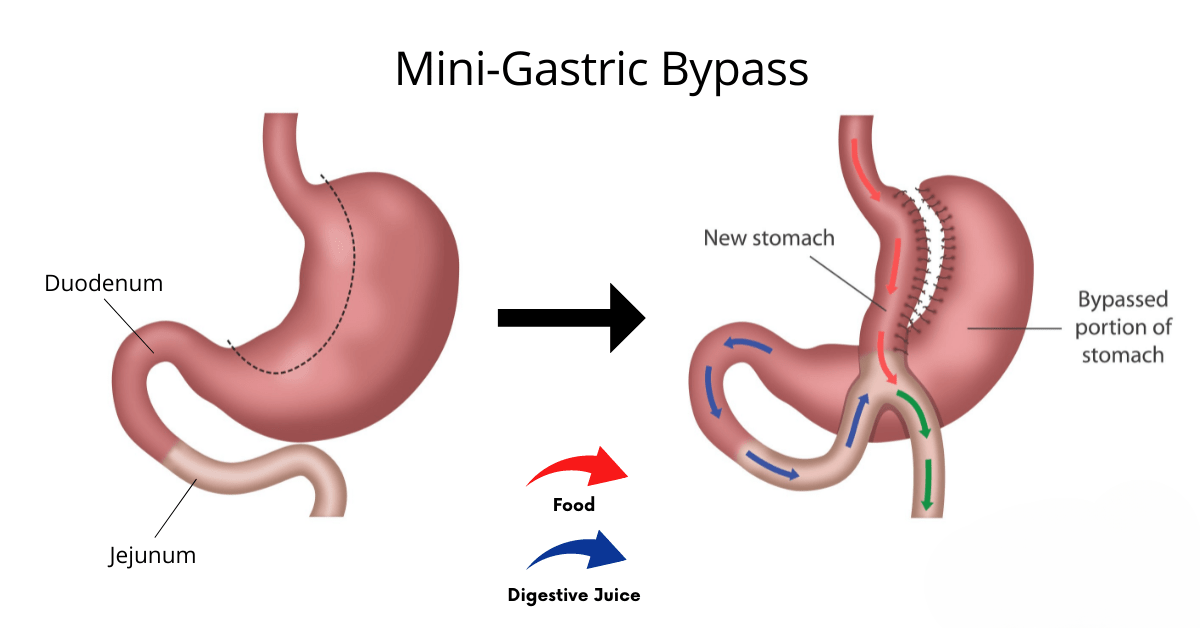What Is the Mini Gastric Bypass Surgery?
The mini-gastric bypass, or single anastomosis gastric bypass, is an effective and well-established procedure which combines some of the properties of a gastric sleeve and a standard gastric bypass. The upper part of the stomach is divided into a tube, similar to the top three quarters of a sleeve, and then joined to a loop of intestine.
The mini-gastric bypass can be used as a primary weight loss procedure. It can also be used in patients who have had previous gastric banding or sleeve surgery but have been unsuccessful with weight loss.
No hidden fees and what you need from consult to surgery. Find out more about our pricing. Financing options available.
A mini gastric bypass surgery is a modified version of the traditional roux-en-y bypass commonly known as the gastric bypass. The mini-gastric bypass procedure is performed laparoscopically under general anaesthesia. The top of the stomach is stapled to form a thin tube. The thin tube becomes the new, smaller stomach and is completely separate to the rest of the stomach. This stomach is then sewn to a loop of the small intestine, bypassing the first part of the intestine called the duodenum and approximately 150–200cm of the bowel. The rest of the stomach and upper part of the small intestine remains in the body but is no longer used for food digestion.
The mini-gastric bypass procedure is restrictive and malabsorptive. This means that the procedure reduces the size of your stomach, restricting the amount you can eat. The procedure reduces the absorption of food by bypassing up to 6 feet of intestines.
Why choose the Mini Gastric Bypass?
Shorter operating time
Less re-routing of the intestines
One fewer anastomosis or connection of the intestines, which could mean less chance of a complication
Similar weight loss and recovery to the gastric bypass
95% of mini gastric bypass patients lost more than 50% of their excess body weight*
Mini Gastric Bypass Disadvantages*
Mini gastric bypass surgery increases your risk of bile reflux, so it is not generally recommended for patients with GERD (Gastroesophageal Reflux Disease)
Risk of intestinal ulcer requiring re-operation is about 1 %
Not a formally approved weight loss surgery in the US
It is not covered by insurance
*Dr. del Pino and his team will work with you to minimize these risks through continual patient observation, and diet and exercise management.
What is the Mini Gastric Bypass Procedure?
Dr. Mario del Pino explains what is the Mini Gastric Bypass Procedure. Learn more about this procedure, what to expect, and its benefits.
¿Qué es el mini Bypass Gástrico?
El Dr. Mario del Pino explica el procedimiento del Mini Gastric Bypass. ¿Cuáles son los resultados? ¿Cuáles son los riesgos? ¿Cuáles son los beneficios?
Patient Testimonials












